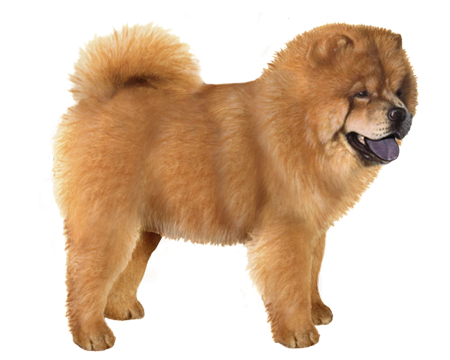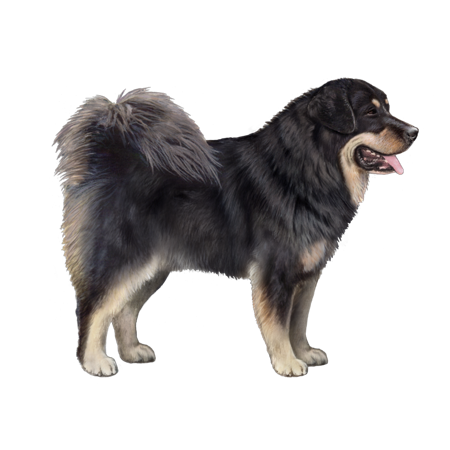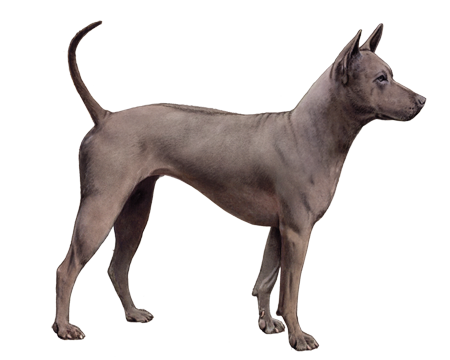
Phu Quoc Ridgeback
The Phu Quoc is an alert, loyal breed with a sweet disposition and regal appearance.
Interested in discovering if your dog is a Phu Quoc Ridgeback?
Check out Wisdom Panel's DNA tests.
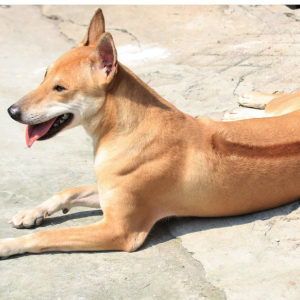
Image Credit: Wisdom Panel would like to thank the Phu Quoc Ridgeback Association, Ba Sushi, Phi Anh, and Red River Kennels for the use of their dogs' photos.
Phu Quoc Ridgeback Traits
General Appearance
The Phu Quoc is one of only three breeds with a ridgeback (the others being the Thai Ridgeback and Rhodesian Ridgeback. Additionally, this medium-sized dog has a square, powerful body built for speed and endurance.
Coat and Coloring
This breed has a short, fine single-layer coat. It comes in black, fawn, brindle, and black and tan. Chocolate coats are possible but not preferred in the breed standard. Some have urajiro (light undersides) or black masks. White spotting can occur but is frowned upon, as it’s not good camouflage in the jungle.
Distinctive Physical Traits
The Phu Quoc's most notable feature is the symmetrical ridge that covers at least 2/3 of its back. Additionally, this breed has a narrow head, expressive almond-shaped eyes, pricked ears, and a long, lean neck. The tail is upright, medium-length and arched like a sickle.
Phu Quoc Ridgeback Temperament
The Phu Quoc is a brave, noble dog that's loyal and loving toward its people. Though generally friendly, they can be cautious around strangers. This energetic breed likes to swim, run, and play, making them a great fit for active families. A tall, fenced yard is best for these pups (who are excellent at jumping and climbing trees).
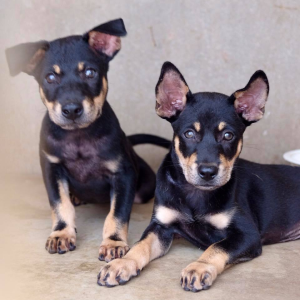
Image Credit: Wisdom Panel would like to thank the Phu Quoc Ridgeback Association, Ba Sushi, Phi Anh, and Red River Kennels for the use of their dogs' photos.
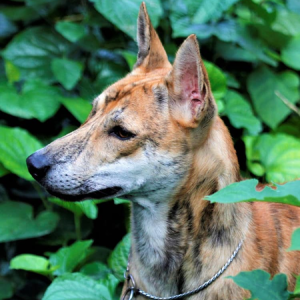
Image Credit: Wisdom Panel would like to thank the Phu Quoc Ridgeback Association, Ba Sushi, Phi Anh, and Red River Kennels for the use of their dogs' photos.
Phu Quoc Ridgeback History
The Phu Quoc Ridgeback is an ancient primitive breed or landrace that developed on Phu Quoc island off the coast of southwest Vietnam. It is the most well known of the four native breeds of Vietnam. These dogs lived alongside native islanders and served as hunting dogs and guardians. They were usually used for scent tracking over short distances in the jungle, often in packs of 3 to 6 dogs. These dogs were often required to hunt for themselves to supplement their sparse diet, so by necessity they are skillful jumpers, swimmers, and climbers.
Originally, several regional variations with differing sizes existed, isolated by the difficult jungle terrain. In the late 1800s, several French colonists took note of the breed and brought Phu Quoc Ridgebacks back to Europe—the breed's first known departure from the island. They are still quite rare today, even in Vietnam.
The Vietnam Kennel Association created the first breed standard based on descriptions from French breeders and extensive historical research. Today, the Phu Quoc Ridgeback Association works to refine that standard and preserve the breed, which is in danger of extinction due to rarity and outcrossing.
Phu Quoc Ridgeback Care
Nutrition
This breed thrives on high-quality dog food appropriate for their age, size, and activity level. To help them maintain their lean appearance, measure their meals to avoid overfeeding and keep treats to 10% or less of their daily calories.
Grooming
The Phu Quoc's short coat sheds minimally, though heavier seasonal shedding periods do occur. They don't require daily brushing and need only an occasional bath to keep them looking their best. Additionally, ear checks, nail trims, and dental care should be part of their grooming routine.
Exercise
Phu Quocs need daily exercise to keep them physically and mentally fit. Brisk walks, jogs, and trips to the lake for a swim are great ways to keep them active. They are also well-suited for dog sports such as agility and flyball.
Training
These intelligent, even-tempered dogs respond well to consistent training with plenty of positive reinforcement. Additionally, all dogs benefit from early socialization. Helping them feel comfortable with different people and environments when they're young will help them grow into well-adjusted adult dogs.
Breed Group
Asian and Oceanian
The Asian and Oceanian group is comprised of breeds whose origins lie in Asia, which have spread as far as Australia, the islands of the Pacific, and the Arctic. This group is possibly the most ancient of all breed groups and were bred for a variety of purposes, including guarding, hunting, and as draft dogs.
Resources
https://www.pqrassociation.org/phu-quoc-ridgeback
https://www.phuquocridgeback.com
https://www.pqrassociation.org/phu-quoc-ridgeback/resources
Reviewed July 12, 2023 by Casey Knox, DVM







